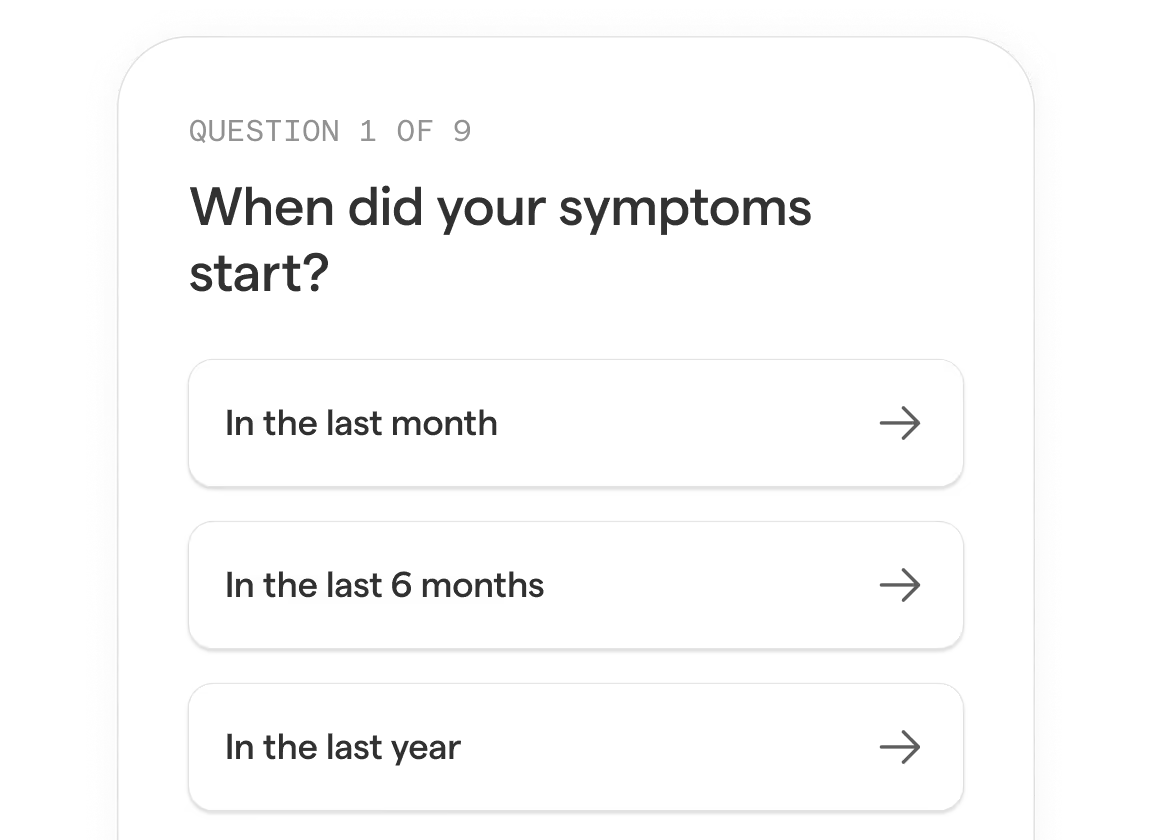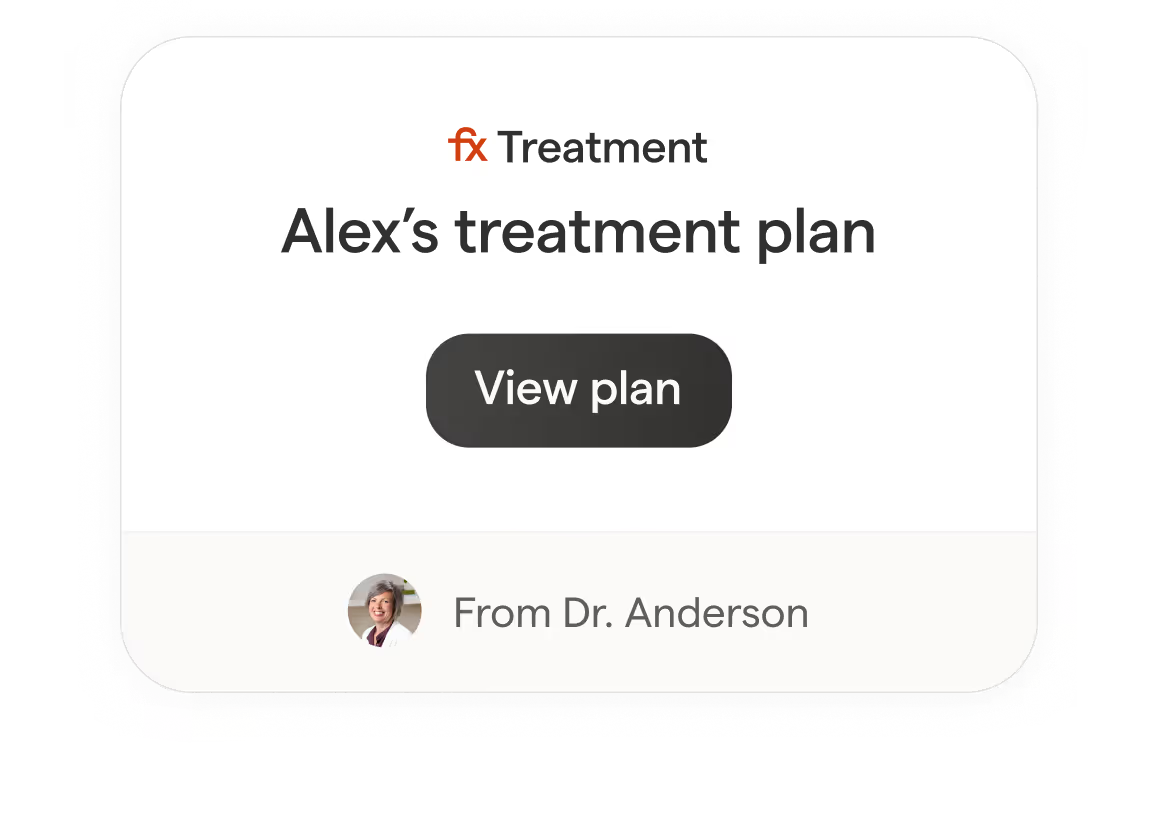Download the Felix App
Earn reward, visit our shop and get exclusive offers on the app
Download now

With Felix, you can get Rabeprazole prescribed by a licensed healthcare practitioner and delivered to your door for free.
Rabeprazole is a medication belonging to the Proton Pump Inhibitor family of drugs, also known as PPIs.
Its primary indication is as a treatment for adults whose stomachs are producing too much acid, in order to reduce conditions brought on by excess acid issues (i.e., acid reflux, GERD, etc.).
Rabeprazole EC is the brand name for this medication, while the main active ingredient in Rabeprazole prescriptions is rabeprazole sodium.
If you’d like to learn more about how Rabeprazole prescriptions function or details regarding this treatment option, you can click here for more information.
Rabeprazole dosages work by reducing the amount of acid that your stomach produces, in order to reduce the symptoms and conditions associated with excess stomach acid.
It does this by blocking the final step in the gastric acid secretion process, as well as produces dose-related sustained prevention of gastric acid secretion.
There are a number of uses for Rabeprazole prescriptions, depending on the specific symptoms and associated condition you’re experiencing. These include:
It’s important that you only take Rabeprazole dosages for the specified amount of time your practitioner has suggested. It will usually be a set period of time.
Their goal will be for you to take the lowest dose of Rabeprazole possible, for the shortest period of time, while still providing relief for stomach acid issues.
Tablets are to be taken on the dosing schedule provided by your practitioner. They can be taken with or without food, but they should always be taken with a liquid. It’s best to take it 30-60 minutes before a meal for maximum effect. Don’t crush or chew the tablets.
Never take more than your prescribed dosage of Rabeprazole, and never double-up on your prescription or stop taking it without consulting your practitioner.
If you miss a dose of Rabeprazole, you can take it as soon as you remember, unless it’s getting close to the time for your next dosage, in which case you should skip the missed tablet. Taking too much Rabeprazole can cause interactions like worsened side effects.
Rabeprazole dosages start to work within an hour of you taking the tablet, and it’s fully effective within your body within 1.5-5 hours, depending on your individual metabolics.
Repeat dosages have been shown to increase the ongoing effects of this medication, although the dosages of Rabeprazole are completely expelled from the body (90% in urine and 10% in feces) after being processed by your gastrointestinal tract.
SIDE NOTE: If you’re wondering, “how long is it safe to take Rabeprazole?”, the answer is as short as possible to achieve the results you need. The reason that practitioners typically use specific treatment periods is that use of Rabeprazole for a year or more can lead to an increased risk of fractures in your hips, wrists, or spine.
Most of the side effects of Rabeprazole dosages will be mild. Some patients may not experience side effects from Rabeprazole at all, and those that do may notice that the side effects lessen or disappear as their bodies adjust to the medication.
With that in mind, the most common side effects of Rabeprazole include:
If any of these side effects of Rabeprazole become severe, be sure to let your practitioner know. They may be able to suggest alternative acid reflux treatments to Rabeprazole without interactions or side effects.
Rarely, there are some more seriously occurring side effects of Rabeprazole to watch for. Let your practitioner know immediately if you start to experience:
SIDE NOTE: Abruptly stopping PPI treatments after a long time may worsen existing side effects of Rabeprazole, as well as lead to a sudden increase in stomach acid production. If side effects are severe, please seek immediate in-person care. It’s important to let your practitioner know if you’re planning to stop taking your Rabeprazole prescription.
Some people shouldn’t use Rabeprazole, because interactions may occur that could cause negative side effects. These people include:
In addition to these, there are some patients that should be extra cautious about using online Rabeprazole prescriptions. These people include those who:
Be sure to let your practitioner know if any of these apply to you, prior to requesting an online prescription for Rabeprazole. They may be able to suggest an alternative to Rabeprazole without interactions or negative side effects.
Also, be sure to let your practitioner know before starting Rabeprazole dosages if you’re currently experiencing these symptoms:
These may be signs that you currently have low blood magnesium levels, which your practitioner may need to address, prior to providing you with Rabeprazole for GERD or acid reflux symptoms.
The safety of Rabeprazole in pregnancy or during breastfeeding hasn’t been established by any studies at this point.
Because of this, it’s not recommended to use Rabeprazole in pregnancy. You should let your practitioner know before requesting an online Rabeprazole prescription in Canada, if you’re currently pregnant, planning to become pregnant, breastfeeding, or planning to breastfeed.
They may be able to suggest an alternative medication to Rabeprazole without interactions, while still offering management solutions for stomach acid issues.
Further reading








You might be able to! However, before you can access medications like Rabeprazole, you’ll need to get assessed by a licensed healthcare practitioner, who can determine whether Rabeprazole is the right choice for your treatment plan.
Felix is making this process quick, convenient, and accessible for patients across Canada through our secure, chat-based online assessment system. Just complete a short online assessment (whenever it works for you), and one of our practitioners will typically get back to you within 24 hours.
If they believe that an online Rabeprazole prescription in Canada is the right choice for you, they can provide you with one. Plus, Felix’s pharmacy partners can then fill and ship your Rabeprazole to you at no cost!
You’ll only have to pay a small assessment fee, as well as the cost of any prescribed medications. We’ll take care of everything else!
We can’t answer this question generally, because every insurance provider and individual benefits package will include a different set of features.
We’d recommend reaching out to your insurance rep, prior to requesting an online Rabeprazole prescription from Felix. This way, you’ll be able to give your clinician any of your applicable insurance information during your assessment.
If you are covered, Felix can even bill your insurer directly to save you the time and trouble! The same applies to future Rabeprazole refills.
In regards to provincial coverage, it’s impossible for us to answer this generally either, because each province will offer coverage for different types of medications. What’s available in one province may not be available in others.
You should look into what medications are available for coverage in your province of residence, as well as what the eligibility criteria is for that medication.
It’s safe to order Rabeprazole online in Canada when you go with Felix. Our team of licensed healthcare practitioners are skilled and experienced at helping patients manage a wide variety of ailments, so they can help you find a treatment that can be both effective and safe for you to use.
Felix’s pharmacy partners are licensed and registered to provide the same medications and treatments that you’ll find at your local pharmacy.
The only difference with Felix versus going to see your family doctor is that there’s no more waiting around in crowded rooms full of sick people, or standing in long lines at the pharmacy waiting to access your prescribed treatments.
We offer the safety and expertise you need to know you’re protected, while also giving you the freedom and convenience to get the treatments you need, from the comfort and privacy of your own home.
Felix can even arrange for future Rabeprazole refills to be delivered, before you run out. This way, you’ll always have your medications on-hand when you need them.
Felix is Canada’s premiere telehealth company, having served well over a million Canadians already with treatments they’ve used to take back control of their health.
We provide guidance, support, and treatment options for a wide variety of different conditions, with a focus on creating a personalized plan of treatment that takes your health, personal needs, wants, and medical history into account.
On top of that, with how busy the world is these days, Felix is happy to be able to provide custom-scheduled support for patients that is based around what works best for your schedule, not the physician’s.
These are just a handful of the reasons that you should choose Felix for your online Rabeprazole in Canada. We’re always growing and expanding our service offerings, so we can continue helping Canadians take back control of their health, happiness, and quality of life.
With Felix in your corner, you can get back to living life on your terms - the way it should be.
Felix is Canada’s first truly integrated healthcare platform. We provide on-demand treatment for everyday health needs like weight loss, mental health, sexual health, and more. Founded in 2019, our digital-first approach to healthcare includes everything from diagnosis to prescription — all accessible from the comfort of home.
No. Felix provides a faster, hassle-free way for you to get a treatment plan for certain conditions, but our service does not replace your primary care provider. For matters that extend beyond obtaining a lifestyle treatment safely and easily, we encourage you to consult your primary health practitioner in person — whether for checkups, personal health concerns, or to inform them about your current treatments or treatment plans.
Absolutely. Our online assessments have been designed to ask all the necessary questions required for diagnosis. We've worked with specialists to create an assessment process that can provide sufficient information for the healthcare practitioner to determine whether or not you are eligible for a prescription and craft an appropriate treatment plan.
Call 911 or proceed to your nearest emergency room immediately. Felix is not intended for medical emergencies. Once the emergency has been addressed or resolved, contact your prescribing practitioner to inform them of your experience as this may impact your current treatment plan.
Anyone who is 18 years or older (16 or older for acne and birth control prescriptions), and is located in Alberta, British Columbia, Manitoba, Newfoundland and Labrador, Nova Scotia, Prince Edward Island, Saskatchewan or Ontario. We cannot ship treatments outside of these provinces at this time.
After creating an account, you will complete a medical assessment for evaluation by one of the Felix healthcare practitioners.
During your assessment, you will have the opportunity to send your practitioner questions via secure messaging.
In most cases, practitioners will complete your assessment with secure messaging alone but sometimes they may determine you require an audio or video visit and/or further diagnostic testing to help determine the best treatment plan for you.
If your practitioner has determined a prescription treatment is appropriate, they will approve your visit and write you a prescription. Our pharmacy will then ship your prescription to your home.
You’ll be able to message your healthcare practitioner if you have questions or want to make changes to your treatment at any time.
No. We use an asynchronous telemedicine model so you can complete your online visit in your own time and we save your progress so you can come back later to finish it.
If you are completing a visit in the mental health or weight loss categories, your healthcare practitioner may require a phone or video call to discuss your medical profile further during the assessment process.
Most assessments do not require a phone or video conversation. Once a prescriber has reviewed the info in your assessment they will respond to you via secure instant messages that you can access within your Felix account.
If you are completing a visit in the mental health or weight loss categories, your healthcare practitioner may require a phone or video call to discuss your medical profile further during the assessment process.
You can expect to receive a response from a healthcare practitioner within 24 hours of submission. If you’ve been waiting longer than this, please reach out to our Patient Support team through the chat bubble in the bottom right corner of your account or our Contact Us page.
No. A visit with a licensed healthcare practitioner is required for all treatments currently provided through Felix’s service.
Not long. After completing your assessment, a practitioner will generally respond within 24 hours, and often much sooner.
Treatment plans will be processed within 2-4 business days of your approval date if there is nothing blocking fulfillment.
All packages usually takes 2-3 business days. You will receive an email with your tracking number once your treatment has been shipped.
Absolutely. All Felix shipments arrive in a nondescript blister package so you can have your treatment shipped wherever makes sense for you as long as there is someone there to sign for it.
A signature upon delivery may be required.
There is currently no cost to have your treatment shipped to you from our Felix Pharmacy network.
Yes, your security is paramount to Felix’s mission. Personal health information provided during your medical assessment is strictly and legally confidential between you and the Felix healthcare practitioner.
Beyond that, all your account information (including the medical assessment, credit card, and shipping information, etc.) is also stored safely and securely. Felix is compliant with all federal and provincial health privacy legislation. It is our duty to protect your data with comprehensive security infrastructure and stringent data policies to ensure it stays private and secure.
Read more on our Privacy Policy.
Yes! In Canada, only a licensed healthcare practitioner can write a prescription, and only a registered pharmacist can fill that prescription. We are supported by leaders in the Canadian pharmacology and specialized medical fields. Felix adheres strictly to all the regulations set forth by all applicable Colleges of Pharmacists and Colleges of Physicians and Surgeons in which we operate.
Absolutely. All prescriptions obtained via Felix are provided by licensed Canadian healthcare practitioners—the same as you would get at a hospital, doctor’s office, or clinic. These practitioners do not provide prescriptions unless they deem it medically safe and appropriate to write them based on your medical profile and assessment answers. Our assessments have been crafted by the practitioners on our medical team. Finally, all Felix Pharmacies are provincially accredited just like any retail pharmacy.
Your privacy is our top priority. All your data is 256 bit SSL/TLS encrypted, and we take significant steps to keep your data secure. You can read our Privacy Policy for more information.
Felix charges a fee for the online visit. In most cases the fee is $40 but varies by treatment category. The visit fee includes a prescription valid for up to a year (depending on the condition) and on-going support from the healthcare practitioner or pharmacist.
It depends. Treatment costs vary but will be in line with what you would pay at a pharmacy in person. You will see the estimated cost of your treatment before insurance, during the online visit but will only be billed for medication costs for your prescription once it is approved and sent to our pharmacy. Once approved, your treatment and payment will be processed within one to two days.
Keep in mind that you won’t necessarily need to pay the full price yourself. If you have insurance, Felix’s partner pharmacies will bill your insurer directly. You may also be eligible for financial support in your province.
We accept all major credit cards for any aspect of your treatment not covered by insurance or other financial support
Treatment coverage varies greatly between different insurance plans.
The good news is that if you are covered, Felix can bill your insurer directly, and then process your treatment plan at no additional cost to you. We recommend that you upload your private and/or provincial benefit card during the online visit so that our pharmacy partner can apply any coverage you are eligible for before processing your treatment plan.
Insurance coverage for treatment plans through Felix doesn't include the cost of your visit.
A Felix online visit is considered asynchronous since it is conveniently completed through a secure chat bases system. Currently, asynchronous visits are not covered by insurance or provincial health plans so you will be charged a visit fee, depending on the category of treatment you are requesting.
Medication coverage varies greatly between different plans, provinces, and has specific criteria that determine eligibility. For private insurance, we recommend contacting your benefits administrator with your details and the Drug Identification Number (DIN) and the drug name to determine your coverage.
For more details on provincial health plan coverage see below:
Alberta: Learn more about AHCIP here. Search for covered drugs here.
British Columbia: Learn more about MSP here. Search for covered drugs here.
Manitoba: Learn more about MHSIP here. Search for covered drugs here.
Newfoundland and Labrador: Learn more about MCP here. Search for covered drugs here.
Nova Scotia: Learn more about MSI here. Search for covered drugs here.
Ontario: Learn more about OHIP+ here. Search for covered drugs here.
Prince Edward Island: Learn more about Health PEI here. Search for covered drugs here.
Saskatchewan: Learn more about Saskatchewan Health Coverage here. Search for covered drugs here.












